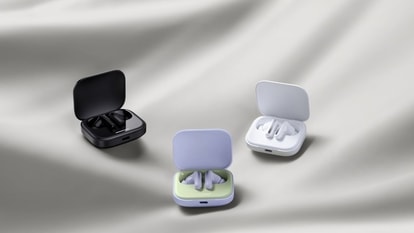Too much email? Let your bot reply; it may be better than you at it
As artificial intelligence continues to improve, we humans are going to have to decide what we're comfortable letting it do.

What will it be like when you have your own bot, and it is as good as or better than you at many daily tasks?
The answer may come sooner than you think. Google's new Pathway Languages Model, which is not yet open for public testing, is the latest advance in artificial intelligence. The technical explanation is that neural networks have been scaled to 540 billion parameters for “breakthrough performance.” The practical effect is that AI is now better at engaging in natural conversation, explaining novel jokes and writing code.
I expect most written communication will eventually be done by bots. I could train my bot by letting it read all my previous email and other writings. Eventually my bot would answer most of my email directly, though it could hold some aside to ask me whether they merited a personal response.
This sounds convenient, and in many ways it will be. I'll have more time for taking walks and reading books. But think through the broader equilibrium. If more emails are read by bots, then more emails will be written by bots. Of course that is already the case, but in this new world the bot-composed emails will be at least as good as human emails, and at least as good at getting through whatever filters I set up to protect my time and attention.
A kind of arms race will ensue. Overall, I expect the number of quality messages and emails to rise. Woe unto those who do not have a very good filtering bot.
Imagine negotiating or discussing terms in such a world. I might receive a proposal from your bot. Is it a real, legally binding offer? Or is it simply a ruse to get me to reveal information about my negotiating strategy? In some cases bots might handle these problems smoothly and present both sides with a final settlement. In other cases, negotiators might insist on a face-to-face meeting, both to know they are getting “the real deal” and to limit the potential for back and forth. For some real-world interactions, online written communications will no longer be good enough.
Think about the college admissions essay, for example. Nowadays it is important. But if the bots become good at writing, applicants might have to show up for a personal interview instead. Countermeasures might then evolve. Maybe there aren't enough admissions officers to conduct all of those interviews. So why not let the applicants spend two days together, tape all the proceedings, and let the bots issue ratings? They might even measure who told the most original jokes.
In this new world, skill at writing will count for much less, and personal charisma for much more. This is not necessarily a positive development. It will be harder to use writing as a measure of broader skill or intelligence.
If you are single, bots may change how you use dating services. It seems tedious to have to swipe left or right all the time — and besides, do you really trust your own judgment? You could instead let your bot choose for you. If you told it you were interested in a potential mate, maybe it could even send you photos of what your children might look like.
As with email, however, there are some potential complications. The good news is that your bot can sort the entire pool of available candidates quickly. Maybe your soul mate was at swipe 3,472 — and maybe now, thanks to your bot, you find that person instead of giving up. The bad news is that the most dateable and marriageable candidates could get pulled out of the pool of eligibles. Dating market liquidity might dry up for less desirable candidates. Tinder obscures from you the reality that a candidate might be only a 4 on a scale of 1 to 10, but your bot will not.
Artificial intelligence brings great benefits to a wide variety of tasks, such as detecting payments fraud, improving medical diagnosis and sending rockets into space. The potential problems come when AI systems interact directly with human attention — and the relevant activity involves a lot of matching and filtering. In those cases, the AI advances may overwhelm our human capabilities to participate in the process. And perhaps there is no final stage, at least not anytime soon, where we can completely rely on AI.
Catch all the Latest Tech News, Mobile News, Laptop News, Gaming news, Wearables News , How To News, also keep up with us on Whatsapp channel,Twitter, Facebook, Google News, and Instagram. For our latest videos, subscribe to our YouTube channel.

























